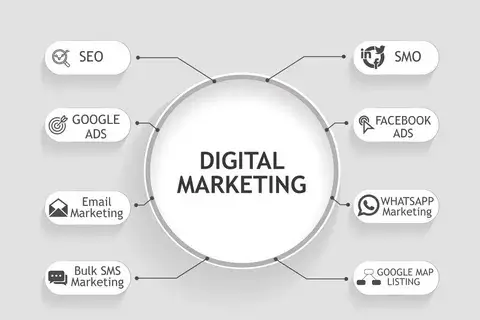Today’s business world is very competitive, so knowing about money is not only helpful, it’s necessary for the success of both individuals and small businesses. Empowering Entrepreneurs and Small Businesses with Financial Literacy” is more than just a topic. It’s a goal to give people the information and skills they need to handle money issues. This piece talks about how important it is to understand financial literacy in order to promote long-term growth and resilience. It covers topics like managing cash flow, reading financial statements, and making smart investment choices. We help businesses of all kinds have a better future by giving entrepreneurs and small business owners the tools and resources they need.

The Impact of Financial Literacy on Business Success
Knowing how to handle money is a key part of running a successful business. It gives business owners the Financial Information they need to make smart choices, use their resources well, and confidently face economic difficulties. Businesses that know a lot about money not only do well, but they can also handle uncertainty well, setting themselves up for long-term growth and success.
Enhanced Decision Making
Business owners who know a lot about money can look at risks and chances and make smart choices that help them reach their goals, which makes their company more profitable and competitive.
Effective Resource Management
Businesses that understand basic financial concepts can better use their resources, make the most of their cash flow, and cut costs where they’re not needed. This leads to longer-term security and higher profits.
Improved Access to Capital
Entrepreneurs who know a lot about money are better able to get loans, negotiate good terms, and draw investors, which helps businesses grow, come up with new ideas, and be more competitive in the market.
Resilience Amid Uncertainty
Businesses that know about money can predict and reduce financial risks, change with the times, and deal with problems quickly, which helps them stay in business and grow even when things are unstable.
Key Financial Concepts for Entrepreneurs and Small Business Owners
Entrepreneurs and small business owners need to understand basic money ideas in order to make smart choices and be successful in the long run. Mastering these basics is the first step to building a strong financial foundation for growth and stability. They include things like budgeting, managing cash flow, knowing financial statements, and planning your taxes.

Budgeting and Cash Flow Management
Budgeting and Cash Flow Management: Making and sticking to a budget helps businesses keep costs down, make good use of their resources, and keep their cash flow healthy. This keeps their finances stable and long-term.
Financial Statements Analysis
Understanding financial statements like the balance sheet, income statement, and cash flow statement helps business owners figure out how healthy their finances are, what their strengths and flaws are, and how to grow their company.
Tax Planning and Compliance
Entrepreneurs can minimize their tax liabilities, avoid audits and fines, and make sure they follow the law by learning about tax laws and rules. This helps them make the most money and keep their money safe.
Risk management
For a business to stay in business, it’s important to find and deal with financial risks like changes in the market or unexpected costs. Entrepreneurs need to come up with effective ways to reduce risks so that they can protect their assets and keep things stable when things are unclear.
Resources for Improving Financial Literacy
Entrepreneurs and small business owners need to be able to access tools that help them learn more about money. You can improve your financial management skills by taking online courses, classes, reading books, and participating in financial literacy programs. These can help you make better decisions and be more successful in business.
Online Courses and Workshops
Platforms that offer classes and workshops on financial literacy make it easy and convenient for entrepreneurs to learn more about important money ideas and strategies.
Books and Publications
A lot of books and articles written by finance experts give detailed information and useful tips on many areas of managing money. This makes them great tools for business owners who want to learn more about money.
Financial Literacy Programs and Initiatives
Government agencies, non-profits, and financial institutions often have educational programs and initiatives for entrepreneurs and small business owners that aim to help them learn more about money. These programs and initiatives offer useful tools and help in developing skills.
Online Resources and Tools
Websites, blogs, and other online platforms that teach about money have a lot of useful tools, like articles, videos, calculators, and interactive ones that let businesses learn at their own pace and get better at managing their money.
Overcoming Financial Challenges Faced by Entrepreneurs and Small Businesses
Entrepreneurs and small businesses face many money problems that can get in the way of their growth and success. But these problems can be solved by taking strategic steps and getting the right help. This will allow operations to continue and lead to long-term success.

Access to Capital
Looking into different types of funding, like loans, grants, and venture capital, can help business owners get the money they need to start or grow their companies and get past financial problems that stop them from growing.
Financial Management
Businesses can lower their debt loads and ease financial stress by using smart debt management techniques, like setting repayment priorities and getting good terms with creditors. This promotes financial stability and resilience.
Cash Flow Optimization
Improving cash flow by doing things like better managing inventory, speeding up receivables, and cutting costs helps businesses stay liquid and deal with cash flow problems, which supports smooth operations and long-term growth.
Financial Planning and Forecasting
By carefully planning and predicting their finances, businesses can see problems coming and find ways to grow. They can also come up with ways to reduce risks and deal with unknowns, which leads to long-term financial stability and success.
Building a Financially Sustainable Business Model
To ensure long-term growth and success, building a business model. That is financially sustainable requires careful planning and management of money. Businesses can build a strong base for financial security and adaptability. Moreover, in changing market conditions by focusing on making money, keeping costs low, and reducing risk.
Revenue Diversification
Diversifying income lines makes a business less reliant on a single source of income. Financial stability shields businesses from market fluctuations, fostering long-term growth and sustainability.
Cost Optimization
Optimizing operations, negotiating contracts, and leveraging technology enhance profitability for businesses. This makes them more financially stable and competitive in the market.
Risk Control
Businesses can protect their assets and stay stable by identifying and reducing possible risks. Like, market volatility, changes in regulations, and operating disruptions. This makes them resilient and able to keep going even when things go wrong.
Financial Monitoring and Analysis
Businesses can find ways to improve their financial performance, make smart choices. Also, change their strategies to adapt to changing market conditions by regularly tracking and analyzing key metrics. This helps them stay financially stable and achieve long-term success.
Importance of Financial Literacy in Business Decision Making
To make good business decisions, you need to know how to handle money. Entrepreneurs can evaluate risks, make good use of resources, and spot business opportunities by understanding basic financial concepts. Businesses that know about money can make choices that help them reach their goals. They also make the most money, and lower their risks. This is the only way to be successful and stay in business in today’s competitive market.
Risk Assessment and Management
Entrepreneurs who know a lot about money can spot possible risks, figure out how bad they could be, and put plans in place to successfully reduce those risks. This protects their business interests and makes them resilient in the face of uncertainty.
Resource Allocation
Businesses that understand financial ideas can better use their resources, make the most of their cash flow, and choose investments that will help them reach their strategic goals. This helps them get the best returns on their investments and improves their overall performance and competitiveness.
Opportunity Evaluation
Entrepreneurs who know about money can look at financial opportunities, figure out how much money they might make, and weigh the risks. This helps them make smart decisions and take advantage of opportunities that help their business grow and make money.
Performance Analysis
Understanding financial metrics allows businesses to assess performance and identify areas for improvement, facilitating strategic adjustments for sustained growth. This adaptability ensures success in dynamic market conditions.
Empowering Employees with Financial Literacy
Giving workers the tools they need to understand money is important for their personal and professional health. Employers help their workers make smart financial choices by teaching them about budgeting, saving, and investing and giving them the tools they need to do so. Financial knowledge reduces stress and increases productivity, fostering happier and more loyal employees. Well-informed employees are more likely to save for retirement and make wise financial choices, contributing to workplace satisfaction. Teaching employees about money improves workplace satisfaction and enhances financial health for individuals and businesses.
Conclusion
In conclusion, Giving workers financial knowledge helps them grow as people and makes businesses stronger. Employers can create a financially savvy workforce by teaching their workers how to make budgets, save money, and spend. This reduces stress and increases productivity. Employee financial education boosts happiness, loyalty, and fosters a positive work environment, ensuring long-term business success.











